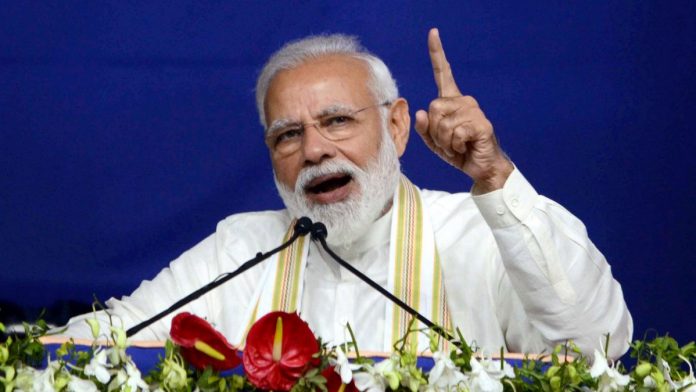SANJAY DIXIT
 It came as a big surprise when a former Northern Army Commander said that the post-Pulwama conflict ended in a stalemate and was hence a defeat for India.
It came as a big surprise when a former Northern Army Commander said that the post-Pulwama conflict ended in a stalemate and was hence a defeat for India.
In all my interactions with past and present military commanders, I have always found them having a multi-dimensional awareness of the strategic compass of not just India, but of various theatres of the world.
But the general’s understanding of the 90-hour conflict is problematic, and confounds the tactical with the strategic, and military strategy with national strategy.
In a modern hybrid war, comprising aspects of fourth and fifth-generation warfare, military is but one aspect, albeit an important one. The economic, diplomatic, and information warfare are equally important, and so is the national will. Add to this, the fifth-generation warfare imposed on Kashmir by Pakistan, and the circle is complete.
Military strategists have despaired for more than three decades over India’s failure to call the nuclear bluff. Ever since it became known in the late ‘80s that Pakistan was a de facto nuclear power, a collective pall of inaction took over the Indian body politic. We decided unilaterally that because the Pakistan Army was a force that glorified ‘jihad-fi-sabilillah’ (fight for the sake of Allah), it would not think twice before sending a nuke across.
If only we took care to study the Islamic doctrine carefully and matched it with the jannat the Pakistani generals created for themselves in this world, instead of seeking it in their afterlife, it would have been instantly clear that no Pakistani general would ever let go of the grand status and riches he enjoyed in this very life. So, the myth of the suicidal Pakistani general is just that, a myth.
Any sound military strategy would say that we test the theory of the enemy, in whatever small way possible. We simply went by the assumptions and the bluff and bluster thrown at us by the ‘smart’ generals from across the border. We did not cross the LoC during the Kargil War, sending an unmistakable signal to the enemy that we were scared of its nuclear madness, and that we took its suicidal narrative seriously. None of this would have come to pass if we had examined this doctrine from the standpoint of their Islamic roots and how the Pakistani generals behaved in real life. It took an air strike on Balakot to break this ‘suicidal Pakistani general’ myth.
Prime Minister Narendra Modi had the common sense and, might I say, the necessary understanding of the Islamic doctrine that the Pakistan military flaunted. This enabled him to call the nuclear bluff, and expose the limitations of the Pakistani doctrine and the ‘suicidal Pakistani general’ myth.
The Indian armed forces backed the Prime Minister by thwarting the attempts of the Pakistani military to go up the escalation ladder. The ‘suicidal’ theory can work only if Pakistan is able to achieve a quick escalation in case of a deep strike of the kind that the IAF carried out.
India managed to penetrate deep into Pakistan, beyond the LoC and into Khyber Pakhtunkhwa, prevented the PAF from escalating the conflict, and exhibited tremendous superiority of its air power. Further, India achieved a complete strategic superiority over Pakistan by building economic and diplomatic pressure. All this has now restricted Pakistan’s future options severely.
So, India has achieved a lot post-Pulwama – it moved the red lines, and prepared the ground for long-term strategic solution by escalating the economic and diplomatic costs for Pakistan. Peace is anathema to the Pakistan Army, and therefore it will definitely leverage the present loss of face to grab an even larger part of the precarious finances of Pakistan, and thereby hasten its downfall.
As I have argued in the past, Pakistan is not a normal nation-state, it is an idea predicated on Islamic theology. Pakistan Army is the self-appointed guardian of that ideology. Large sections of the Pakistani population outside its Punjab province do not buy into that ideology.
This provides India an opportunity to continue its hybrid war by raising military capacity, and through consolidation of economic power. Diplomatic and information warfare are already in place, but will get fortified even more. Our long-term strategic objective should be to destroy Pakistan as an idea. Post-Pulwama, India has made solid gains in that direction. We also need to look at issues like Article 370.
So, the first round after Pulwama has been a resounding win for India in a continuing hybrid war with Pakistan. To say it ended in a stalemate is to miss the woods for the trees. We need to push on with this trajectory.
Sanjay Dixit is an IAS officer and ex-president of Rajasthan Cricket Association.
No comments:
Post a Comment